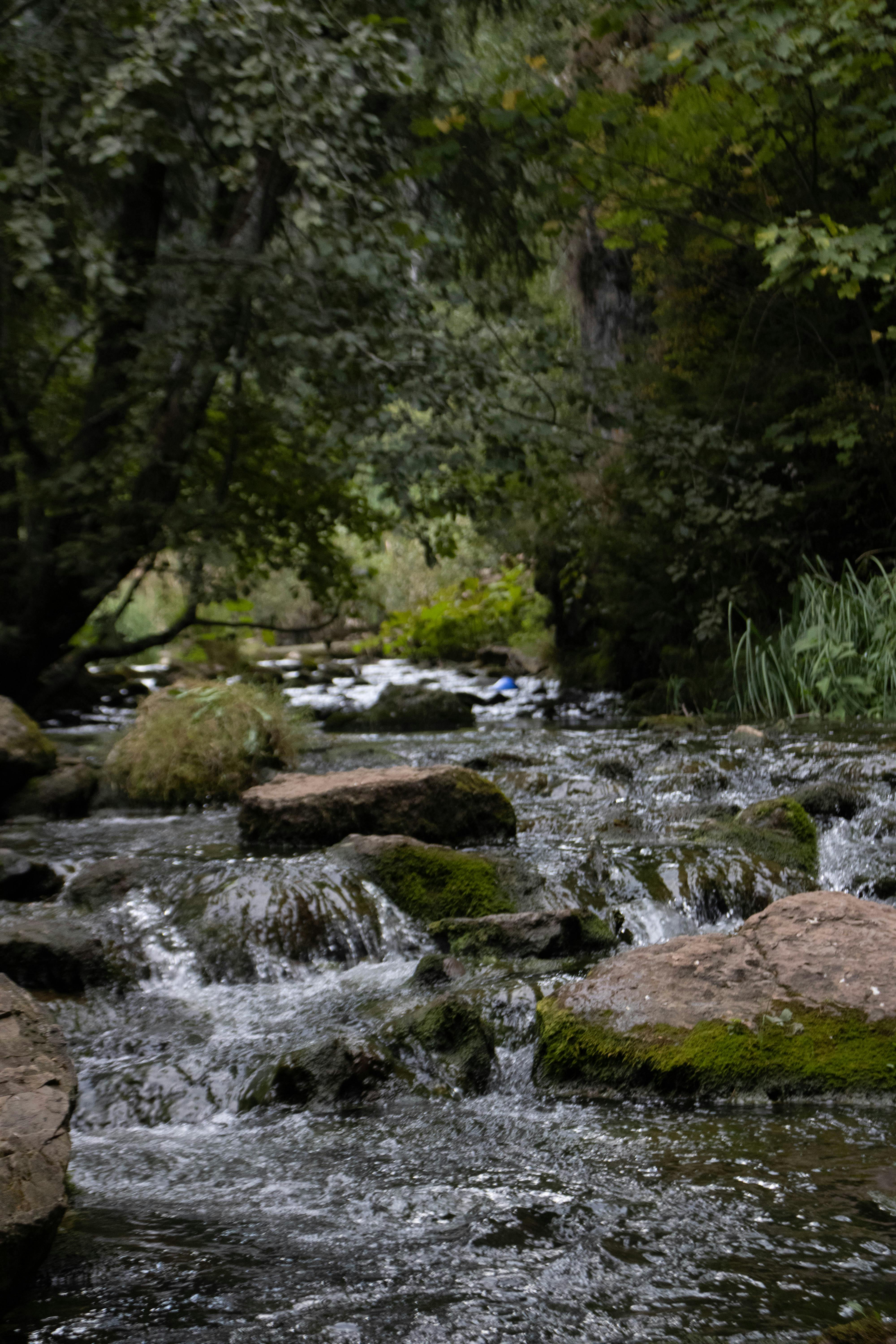
Comprehensive Guide to Sea Life in New Jersey
New Jersey's coastline is a vibrant tapestry of marine life, from the diverse species that inhabit its waters to the rich ecosystems that sustain them. Understanding this underwater paradise is crucial for both residents and visitors, fostering appreciation and promoting conservation. This guide will dive into the aquatic species, marine habitats, and ecological dynamics that define New Jersey's coastal landscapes. Whether you’re interested in fishing, scuba diving, or marine conservation, you'll find valuable insights and resources to enhance your experience.
As we explore the various aspects of sea life in New Jersey, you'll discover intriguing information on local fisheries, tidal pools, and educational programs that promote environmental awareness. Join us on this journey as we uncover the secrets of New Jersey's oceanic wonders, touching on beachcombing, snorkeling, and much more. Let’s embark on a comprehensive exploration of the ocean’s depths, where adventure and knowledge await!
Understanding Marine Habitats in New Jersey
New Jersey's marine environments provide a plethora of habitats that are vital for diverse species. These include estuaries, salt marshes, and coral reefs. The state's coastline has a unique geography that allows for various ecosystems to thrive. Each habitat plays a critical role in supporting marine life, making the preservation of these areas essential.
Estuaries: The Lifeblood of Coastal Ecosystems
Estuaries serve as crucial nurseries for many fish species and are rich in plant and animal life. These areas are where freshwater from rivers meets the saltwater of the ocean, creating a dynamic environment that supports high biodiversity. For example, the Raritan and Delaware estuaries are known for their vast populations of juvenile fish, such as flounder and striped bass, making them important areas for recreational fishing New Jersey.
Moreover, estuaries serve as natural filters, improving water quality and providing habitat for numerous species, including migratory birds. This unique interplay of freshwater and saltwater is endlessly fascinating to marine biologists and recreational enthusiasts alike.
Salt Marshes: Nature's Filters
Salt marshes, like those found in Barnegat Bay, are some of the most productive ecosystems in the world. They provide a home for a variety of species, including crustaceans, mollusks, and vital forage fish. These areas act as buffers against storm surges and flooding while contributing significantly to marine conservation efforts in New Jersey.
Wildlife photography enthusiasts often flock to these marshes to capture stunning images of the rich biodiversity, including migratory bird species that depend on these habitats for food and shelter. Understanding the importance of salt marshes can inspire individuals to participate in conservation initiatives and ecological workshops focused on preserving these delicate environments.
Coral Reefs: A Fragile Ecosystem
Though less common than in warmer climates, coral reefs can be found off New Jersey’s coast. The most notable are the artificial reefs created from shipwrecks and old materials, which provide crucial habitats for marine life. These man-made structures attract fish and other aquatic species, enhancing recreational fishing and scuba diving experiences.
Coral species, like the hard and soft corals existing in deeper waters, contribute to New Jersey's marine biodiversity but face threats from climate change and pollution. Initiatives focusing on marine habitat restoration play a vital role in ensuring the survival of these ecosystems.
Exploring Local Marine Species
New Jersey is home to a rich array of aquatic species, from the majestic whales that roam the ocean’s depths to the smallest plankton floating in its depths. By learning about the diverse marine life, we can better appreciate the ecosystems and the importance of conserving them.
Common Fish Species in New Jersey
Several prominent fish species inhabit New Jersey's waters, including striped bass, bluefish, and flounder. These species are not only critical for maintaining ecological balance but also provide fantastic recreational fishing opportunities. Understanding local fishing regulations is essential for sustainable practices and conservation efforts.
During peak seasons, many local fisheries offer guided fishing tours, providing a hands-on experience for those keen on learning about fish species New Jersey supports. Engaging in these tours can serve as an educational journey, highlighting the delicate relationships between fishermen and marine ecosystems.
Marine Mammals and Their Importance
Marine mammals, including sea turtles, dolphins, and whales, can often be spotted off the New Jersey coast. The sight of dolphins playing in the waves is a delightful experience for beachgoers and ocean enthusiasts alike. Organizations dedicated to marine mammal protection work tirelessly to monitor these species and educate the public on conservation efforts.
Participating in ocean tours focused on wildlife observation allows for unique encounters with these animals while promoting awareness of their struggles. Educational programs are essential in ensuring that future generations understand the need for marine conservation New Jersey advocates.
Invertebrates and Other Aquatic Species
From jellyfish to sunfish and sea stars, New Jersey's waters host a variety of invertebrates that play vital roles in the ecosystem. Jellyfish, for instance, are a food source for various marine species, while sea stars contribute to the health of underwater habitats by preying on bivalves.
Beachcombing and shell collecting are popular activities along the New Jersey shore, offering opportunities to learn about these fascinating creatures. Educational institutions often provide programs that focus on the identification and conservation of such marine life, enhancing community awareness and respect for coastal ecosystems.

Engaging with New Jersey’s Coastal Wildlife
For those who wish to connect with the ocean more deeply, New Jersey offers various activities that allow for personal engagement with coastal wildlife. From snorkeling and scuba diving to beach activities and educational workshops, there's something for everyone.
Underwater Adventures: Snorkeling and Scuba Diving
Snorkeling and scuba diving are magnificent ways to explore New Jersey's underwater realms. With courses available for all levels, locals and visitors can experience the local marine biodiversity firsthand. Of particular interest are the artificial reefs teeming with marine life, providing a fascinating environment for underwater exploration.
Marine parks and reserves often host guided dives that are both educational and thrilling, teaching participants about local aquatic ecosystems and conservation efforts. Marine education programs are available to ensure that all divers are aware of their impact on these delicate environments.
Beach Activities: Connecting with Nature
Beach activities are not just for relaxation; they can also be educational! Tidal pools, often filled with unique marine organisms, provide an excellent setting for exploration. Families can participate in organized beach clean-ups and learn about the importance of water conservation in maintaining healthy coastal ecosystems.
Additionally, beach festivals celebrating marine life offer a chance to engage with local marine organizations and educate the public on sustainable practices. Involvement in such events fosters community ties while promoting environmental awareness.
Conserving New Jersey’s Marine Life
Engaging with local marine conservation initiatives is essential in preserving New Jersey’s marine environments. Many organizations focus on habitat protection, recycling programs, and legislation to combat pollution. By participating in these efforts, individuals not only help in conservation but also gain deeper insights into marine biology.
Workshops and volunteering programs provide hands-on experiences, teaching participants about the challenges marine environments face and how they can make a difference. Such initiatives empower community members through education, ensuring future generations are stewards of the ocean.

Marine Education and Awareness
Promoting marine education and awareness is vital for the sustainability of New Jersey's aquatic life. Through various programs and institutional partnerships, the community can engage in enriching experiences that highlight the importance of marine ecosystem preservation.
Educational Institutions and Programs
Several educational institutions and public aquariums in New Jersey offer programs targeting different age groups. These programs encompass marine biology, ecological workshops, and hands-on learning opportunities that inspire students to become future marine advocates.
Institutions often collaborate with local fisheries and conservation groups, providing a comprehensive approach to marine education. Students gain insights into the complexities of aquatic ecosystems, how they can contribute to sustainability, and the necessity of protecting ocean habitats.
Marine Events: Community Engagement
Marine events, such as coastal clean-up campaigns and public lectures, serve to engage the community while promoting environmental stewardship. These gatherings also provide a platform for local marine organizations to share information about ongoing conservation projects and ways people can help.
Attending marine-focused events allows individuals to network with like-minded enthusiasts and learn from experts in the field. Such experiences foster a greater understanding of marine challenges and encourage community collaboration in conservation efforts.
Raising Environmental Awareness
Educational programs aimed at raising environmental awareness are crucial in building a community committed to marine conservation. Workshops can provide insight into sustainable fishing practices, shore ecology, and the impact of climate change on marine life.
By emphasizing the importance of understanding our marine environments, we can cultivate an ecological consciousness and inspire future generations to advocate for the health of New Jersey’s ocean ecosystems. Engaging diverse community members in these educational experiences can amplify the message of conservation and stewardship.
Q&A on Marine Life in New Jersey
What are the best times to engage in fishing in New Jersey?
The best fishing seasons in New Jersey often depend on the species. Generally, spring and fall are highly recommended for various fish species, including striped bass and flounder. Consult local fishing regulations and guides for the most effective times and locations.
What is beachcombing and why is it important?
Beachcombing is the act of searching for interesting items along the beach, such as shells and marine debris. It is important as it promotes awareness of marine biodiversity and helps educate individuals on the impact of pollution on coastal environments.
How can I get involved in marine conservation efforts?
You can engage with numerous local organizations that focus on marine conservation through volunteering, participating in clean-up efforts, or attending educational programs. Being part of a community effort can amplify the impact of these initiatives.
As you embark on the journey to discover the rich marine life in New Jersey, remember that knowledge and action can drive meaningful change. Whether it's through fishing, beach activities, or simply advocating for marine conservation, your engagement can help preserve the underwater worlds we cherish.
In conclusion, New Jersey’s sea life offers incredible diversity and opportunities for exploration and education. With the right knowledge and commitment to conservation, we can ensure that future generations enjoy these vital ecosystems as much as we do.